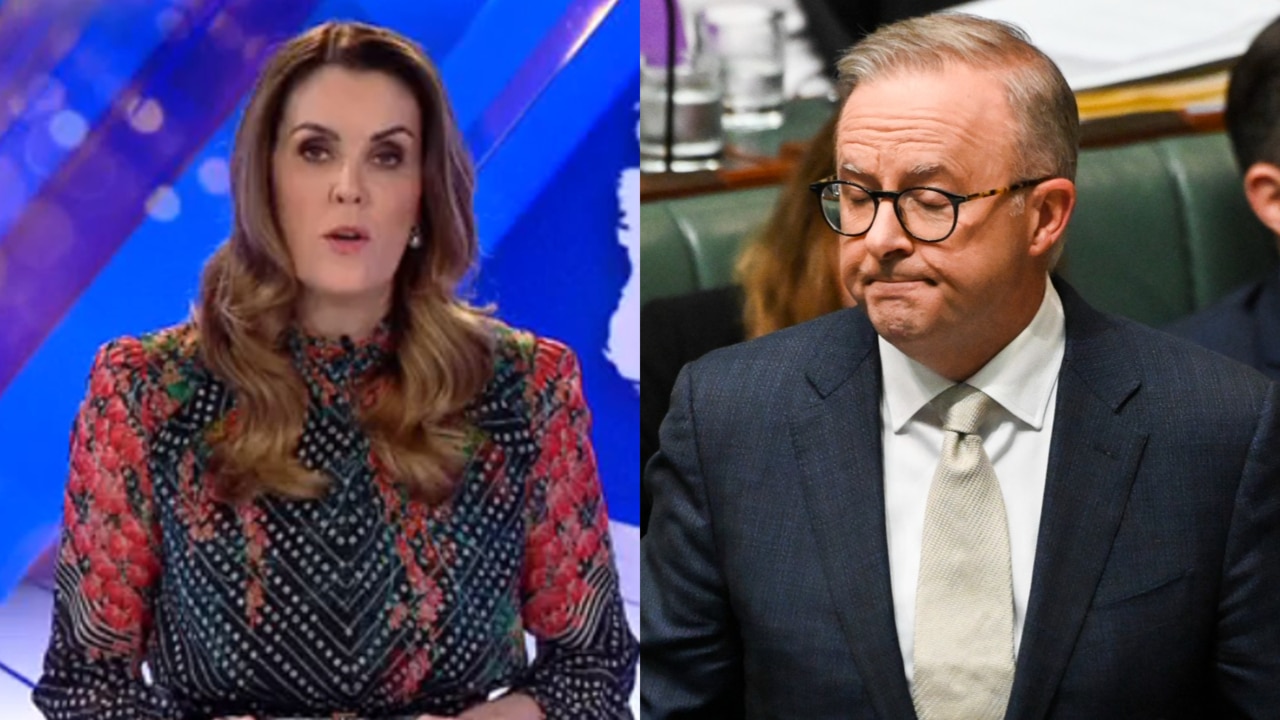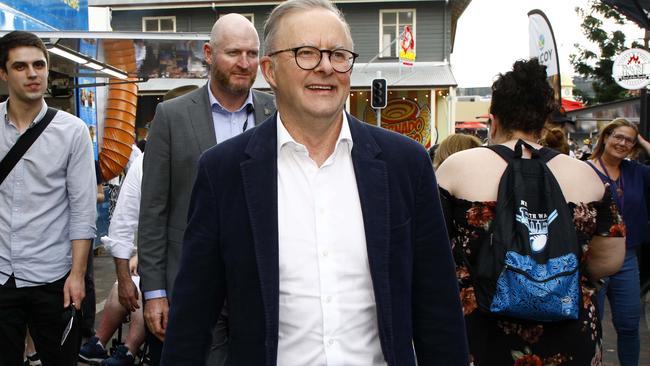
Accompanied by Foreign Affairs Minister Penny Wong and Defence Minister Richard Marles, Albanese moves around the world stage, showing a professionalism that has rarely been matched by his predecessors.
The Matildas make Australia proud, but so does our prime minister, albeit in a different way.
And his “yes” campaign promises to deliver harmony with Aboriginal and Torres Strait Islander people and better outcomes for those in their ranks who are suffering. Accordingly, he taps a groundswell of approval for his campaign to embrace the so-called Uluru statement in full.
Albanese convinces many corporate leaders, led by Qantas boss Alan Joyce, to embrace the sentiment and campaign for a yes vote. And if he was delivering what he promised, he would have taken Australia with him in supporting the “Yes” vote.

But then comes the other side of our prime minister.
In an interview with Melbourne 3AW radio commentator Neil Mitchell, he reveals the awful truth. He has not read the Uluru statement that he and his supporters, including Joyce, are campaigning for.
Albanese’s lame excuse is that he has read the summary and that he regards the summary as the full statement. Had he read the full 26-page Uluru statement, I don’t think we would have had this very divisive referendum.
Earlier this month, under the heading Why the Uluru agenda changes the voice game, I explained why the full Uluru statement is the exact reverse of what the Prime Minister is campaigning for.
It is possible that the High Court will devise a set of interpretations that make it impossible for an amended constitution to deliver the aims the Aboriginal and Torres Strait Islander peoples set out in their Uluru statement.
But with great skill, the amended constitution that the Aboriginal community put forward has been designed so that it will deliver what the Uluru statement aims to achieve.
Underlying the Uluru statement is deep hostility to the actions of the non-aboriginal people who have come to Australia.
The Aboriginal and Torres Strait island communities have no interest in a patronising preamble to the constitution, which merely sets out their role in Australia’s history.
They want recognition of “the ancient jurisdictions of First Nation law” and the fact that Aboriginal and Torres Strait Islanders have never ceded “our sovereignty” and they want a Voice Body that will deliver via a treaty “a pathway to recognition of sovereignty” and “the vehicle to achieve self-determination, autonomy and self-government”.
And with that treaty comes “a financial settlement (such as seeking a percentage of GDP), the resolution of land, water and resources issues, recognition of authority and customary law, and guarantees of respect for the rights of Aboriginal and Torres Strait Islander Peoples”.
To achieve those objectives, the proposed change to the constitution sidelines the parliament of Australia to enable the voice body to make representations (not decisions) on almost every issue raised by our government because the voice body goes direct to the public service.
This way, it has the power to clog the Australian governmental process and force the nation to adopt the thrust of the Uluru statement.

Had direct access to the public service decision-making process being excluded from the constitutional change proposal and parliament not been sidelined, it might have been arguable that the Voice body would not be able to deliver the aim of the Aboriginal and Torres Strait Islander people who wrote the Uluru statement.
A great many Australians do not want to divide the country like this and will be horrified that their prime minister has not read the statement he is campaigning for and, in ignorance, attaches to it a totally different aim to that set in writing by its authors.
Australians need to realise that when their prime minister is surrounded by top people as occurring in defence and foreign affairs — and I would add education and treaties — he is a brilliant performer. But on his own, and when bad ministers are advising him, a very different prime minister can emerge.
From my limited historical knowledge, on the world stage the nearest leader to Albanese is Ronald Reagan, although I am sure there are others. Reagan, a former actor and a brilliant communicator, was of course a right wing US president and Albanese is left wing.
As brilliant communicators, both were at their best when the right advisers were around them.
Australian companies have backed the prime minister in this campaign without realising that he hadn’t read the document he was campaigning for.
They will need to be much more careful in the future, and last week’s alert from former National Bank boss and BHP chairman Don Argus must become part of all large corporate board decision-making.






Since Federation, Australia has had 31 Prime Ministers, but we have never had a Prime Minister that resembles Anthony Norman Albanese.